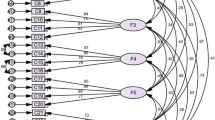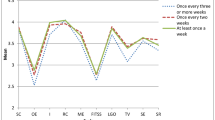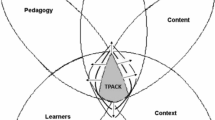Abstract
This pilot study set out to ascertain whether the level of dependence on resource material is related to teaching experience, existing understanding in mechanics, and perceived self confidence in science and technology. Details of teaching experience and qualifications were obtained from 11 experienced teachers and 10 initial teacher trainees, and understanding of mechanics was assessed by a written test. Each teacher worked through one commercially produced inservice pack about levers, pulleys or gears, and then prepared a 30 minute session for 4 ten year old children. Videos of the sessions were analysed with respect to the extent to which the pack was the sole focus; the amount of integration with other teaching aids and approaches; and the extent individual children's needs were satisfied. Although science qualifications influenced teacher confidence, they were not accurate predictors of relevant knowledge and teaching competence. As the majority of teachers followed pack instructions closely, the children's needs were not always well matched.
Similar content being viewed by others
References
Association for Science Education (1992).ASE policy: Present and future. Hatfield: ASE
Barnes, L.R. & Shinn-Taylor, C. (1988). Competency and expertise in primary school music and science: a survey of five schools in North East England.Curriculum, 9(1), 28–34
Cavendish, S., Galton, M., Hargreaves, L. & Harlen, W. (1990).Assessing science in the primary classroom: Observing activities. London: Paul Chapman.
McDiarmid, G.W., Ball, D.L., & Anderson, C.A. (1988). Why staying one chapter ahead doesn't really work: Subject-specific pedagogy. In M.C. Reynolds (ed.)Knowledge base for the beginning teacher. Oxford: Pergamon Press.
Newton, D.P. (1992). Children doing science: Observation, investigation and the national curriculum for England and Wales.Evaluation and Research in Education, 6(2&3), 65–76
Rich, Y. (1993). Stability and change in teacher expertise.Teacher and Teacher Education 9(2), 137–146.
Russell, T., & Harlen, W. (1990).Assessing science in the primary classroom: Practical tasks. London: Paul Chapman.
Schilling, M., Harlen, W., Hargreaves, L., & Russell, T. (1990).Assessing science in the primary classroom: Written tasks. London: Paul Chapman.
Thomas Report (1985).Improving primary schools London: I.L.E.A.
Wragg, E.C., Bennett, N. & Carre, C. (1989). Primary teachers and the national curriculum.Research Papers in Education, 4(3), 17–46.
Author information
Authors and Affiliations
Additional information
Specializations: primary science and technology, teacher education.
Specialisations: science education.
Rights and permissions
About this article
Cite this article
Jarvis, T., Cavendish, S. Subject competency of teachers and level of dependence on resource packs to teach levers, gears and pulleys. Research in Science Education 24, 166–172 (1994). https://doi.org/10.1007/BF02356341
Issue Date:
DOI: https://doi.org/10.1007/BF02356341




